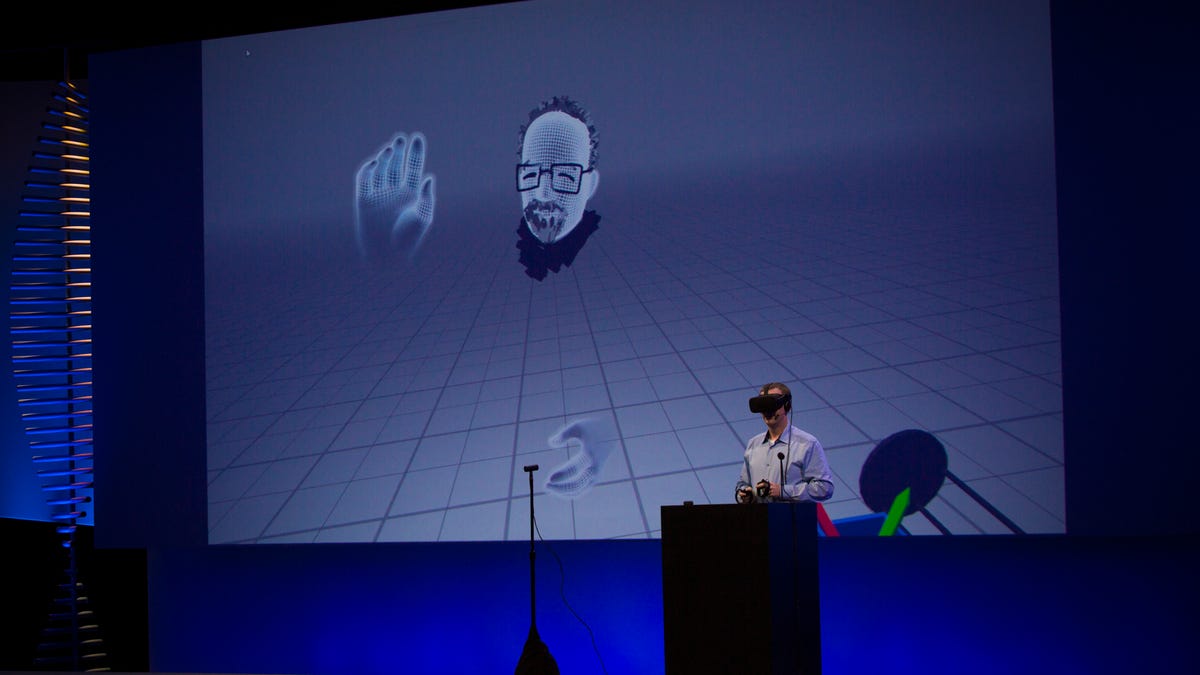Facebook is full of ideas to make virtual reality more social
The world's largest social network is building apps so people can share photos using the Oculus Rift VR headset.
Facebook wants you to take a selfie in virtual reality.
The social networking giant is building apps that make it easy to share photos with people using its Oculus Rift headsets, which put a screen so close to people's eyes that it tricks them into thinking they're actually in a computer-generated world.
One app the company showed off at its F8 developer conference in San Francisco lets people to share 360-degree photos and look around together.
Here's how it works: Two people wearing Rift headsets find each other in a specialized room where they see floating avatars, computer images representing them in the virtual world. In the room is a table holding spheres, which represent 360-degree photos. If they grab a sphere and put it on their avatar's face, they're transported inside the photo, and can look around from its center.
Facebook has figured out a way to take a selfie in front of London's Big Ben, while standing on a stage in San Francisco.
Facebook even built a virtual selfie stick, allowing people to take selfies in a 360-degree photo in VR. (Try saying that five times fast). And of course, they can post that selfie to Facebook from within the app by dropping the photo into a post office box with a Facebook logo.
"When you put two people in this environment you start to have a lot of fun," said Mike Schroepfer, Facebook's chief technology officer, at F8 on Wednesday.
While this app is only a demo, it gives insight into the way social networking will work in VR. Facebook surprised the tech world when it purchased Oculus for $2 billion in 2014, in part because it seemed like such an unusual move. What would the world's largest social network do with VR technology?
The answer is communication. Facebook is selling the $599 Rift headset with the promise of more immersive games and videos, but the future it sees is in communication.
"Imagine enjoying a courtside seat at a game, studying in a classroom of students and teachers all over the world or consulting with a doctor face-to-face -- just by putting on goggles in your home," Zuckerberg said when he announced the acquisition two years ago. "This is really a new communication platform."


